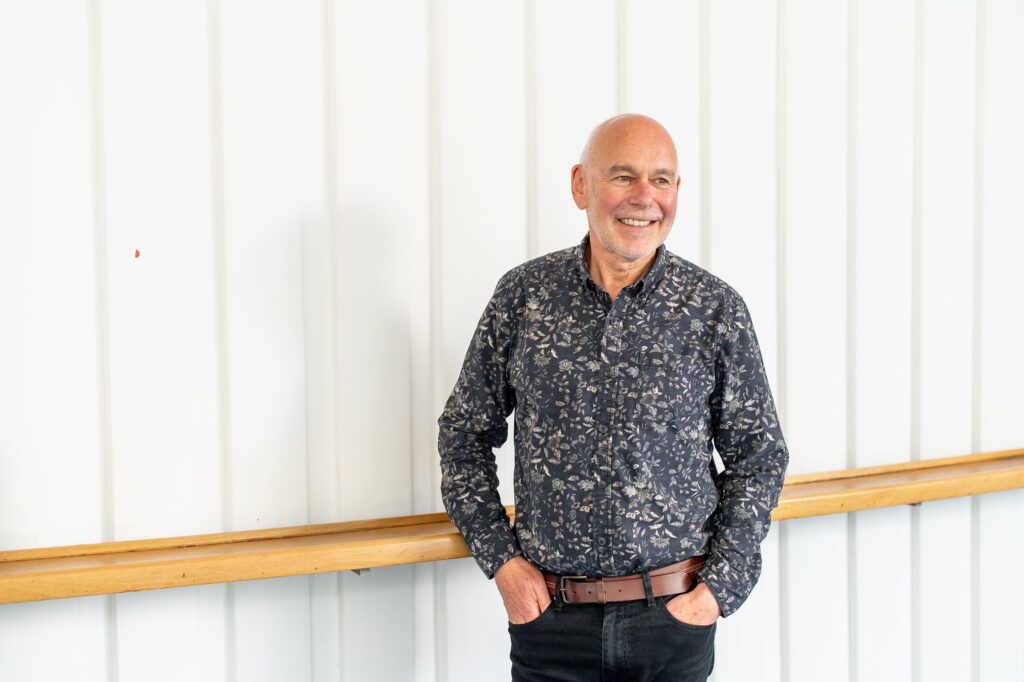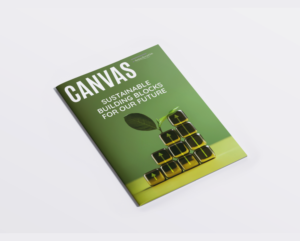
We are pleased to introduce Philip Rodney as our new Senior Advisor in this edition of CANVAS and to share insights into his professional and personal passions. A stalwart of the Scottish legal profession Philip was latterly Chair of Burness Paull LLP until 2018 culminating 20 years of senior leadership roles. He founded Rimalower Consulting four years ago and has taken on a range of cross-sector non-executive appointments which reflect his experience and interests including Chair at Lar Housing Trust, Chair at Scottish Jewish Heritage Centre and Governor at the Royal Conservatoire of Scotland.
Philip’s appointment as a Senior Advisor underlines the firm’s strategy as an exciting new contender in the legal search space, focusing on appointments at partner and function head level.
Can you share a bit of your background and what attracted you to working with the team at Saxton Bampfylde?
I won’t say how long I practised as a lawyer, but as a clue, I qualified the year that Bohemian Rhapsody was No.1 in the UK charts. I spent 20 years in management roles.
When I stepped down as Chair of Burness Paull, I decided that I wanted a break from the law and took on various Chair and Non-executive Director roles as well as writing, mentoring and attempting to learn bass guitar.
I had previously come across Saxton Bampfylde when I was Chair of the governors of the Glasgow School of Art. We had engaged them, following a beauty parade, to lead the search for our new Director. They did a brilliant job and were great to work with. What really impressed me was the mix of professionalism and culture. We stayed connected subsequently.
When the opportunity came along to work with Mary and Siân in helping them develop their professional services practice, I was surprised at how excited I was by the prospect of engaging with the legal profession again.
Can you tell us more about your role as a Senior Advisor for Saxton Bampfylde?
My principal role is to provide wise counsel and help develop Saxton Bampfylde’s professional services practice strategy. Saxton Bampfylde has an amazing track record – 98 per cent success rate against an industry norm of 60 per cent, according to Harvard Business Review. As they focus on the legal market in Scotland, my role is to provide market perspective and act as an ambassador to the firm
What are the strategic opportunities that you see with your involvement?
While for 40 years, I provided legal services, I’ve spent the last four, in various roles, buying them. This has enabled me to see both sides of the table and provided me with a different perspective of what makes a great lawyer. I hope that my involvement will enable me to assist the team in developing a unique offering in the legal recruitment market.
What do you consider to be the key challenges for the Scottish legal sector in the short to medium term?
I would frame the question more in terms of opportunity. I don’t think that the adage that “no one got fired for buying IBM” applies to the same extent now. The selection process for the appointment of lawyers is becoming more and more sophisticated. General counsel is much more likely to look beyond the brand and buy on the basis of a balance of specific expertise and value for money. That means there are better opportunities for new entrants to the market. I also think that most law firms still have the institutional mindset of selling to baby boomer clients. That leaves an opportunity for firms that properly understand and target a millennial and Generation Z client base.
“A great leader gets it right seven times out of ten. If you get it right ten times out of ten, you aren’t trying enough new things.”
What are you most proud of in either your executive or non executive career?
In my executive career, I helped to lead the firm through its transformation from a respected mid-market domestic practice to its position as a leading law firm head-quartered in Scotland with an international client base.
In my non-executive career, mentoring future generations and helping them to develop their potential and achieve their ambitions. It’s wonderful not to have to compete as you sometimes do in your career, but rather watch others flourish.
What makes a good leader in your view?
When it comes to leadership, I don’t think that good is enough; one must aim for great. It requires you to be selfless – always looking for what is best for the organisation. I remember when I took over as Chair of our law firm, waking up on the first morning and thinking that for the first time in my life I was accountable to no one. A split second later, I had the dawning realisation that in fact the reverse was true. For the first time in my life, I was accountable to everyone.
You need to be prepared to make hard calls because they are right rather than politically expedient. That requires you to be brave enough to accept unpopularity. My rule of thumb was that if a third of your constituency enthusiastically embraced a decision, a third would go along with it and a third wanted your head on a plate, you had probably got the call about right. If you waited for the final third to come on board, you would probably be too late.
Authenticity is important – being brave enough to share the real you, frailties and all, rather than an airbrushed version of yourself.
In my experience, the distinctive feature of the very best leaders is that they are adventurers – people who have open minds and the ability to uncover exciting potential. The most important bit of advice that I ever received was that a great leader gets it right seven times out of ten. If you get it right ten times out of ten, you aren’t trying enough new things. The trick is to experiment and if it doesn’t work, retreat quickly and with humility.
And great leaders don’t think of legacy. They do the best they can during their tenure and then they hand over to someone else who hopefully will do an even better job.
Outside of work what interests or excites you?
Fast cars and loud music. I’ve had an unhealthy automotive obsession for as long as I can remember. My mother tells me that when I was two years old, she and my father took me on holiday to Switzerland. All that I wanted to do was walk around car parks and touch the vehicles. My wife would probably say that that hasn’t really changed. BBC Radio 6 Music is the backdrop of my life. I’ve been to Glasto a few times and more recently to Primavera Sound in Barcelona. I’m a bit of a magpie. I dip into different things. I like rock, reggae, funk, jazz, folk. Whereas I used to pride myself in having provided our three sons with a music primer, they have now turned me on to genres I had never heard of. Pirate metal anyone?
With the choice – pop on a podcast or bury your nose in a book? And please share any good recommendations…
Both. The advantage of the podcast is that you can have access anytime – in the gym, on the train, while washing the dishes. A book requires you to find space.
My recommendations for podcasts are ‘The Rest Is Politics’ with Alastair Campbell and Rory Stewart and ‘How I Built This’ with Guy Raz. ‘Smith and Sniff’ and ‘The Intercooler’ are my two favourite car themed podcasts. I don’t read as much fiction as I would like to. I would recommend ‘Trio’ by William Boyd – he’s always a safe bet. The book I’m reading just now is ‘Charlie’s Good Tonight’ by Paul Sexton. It’s the authorised biography of Charlie Watts, one of my rock and roll heroes.
